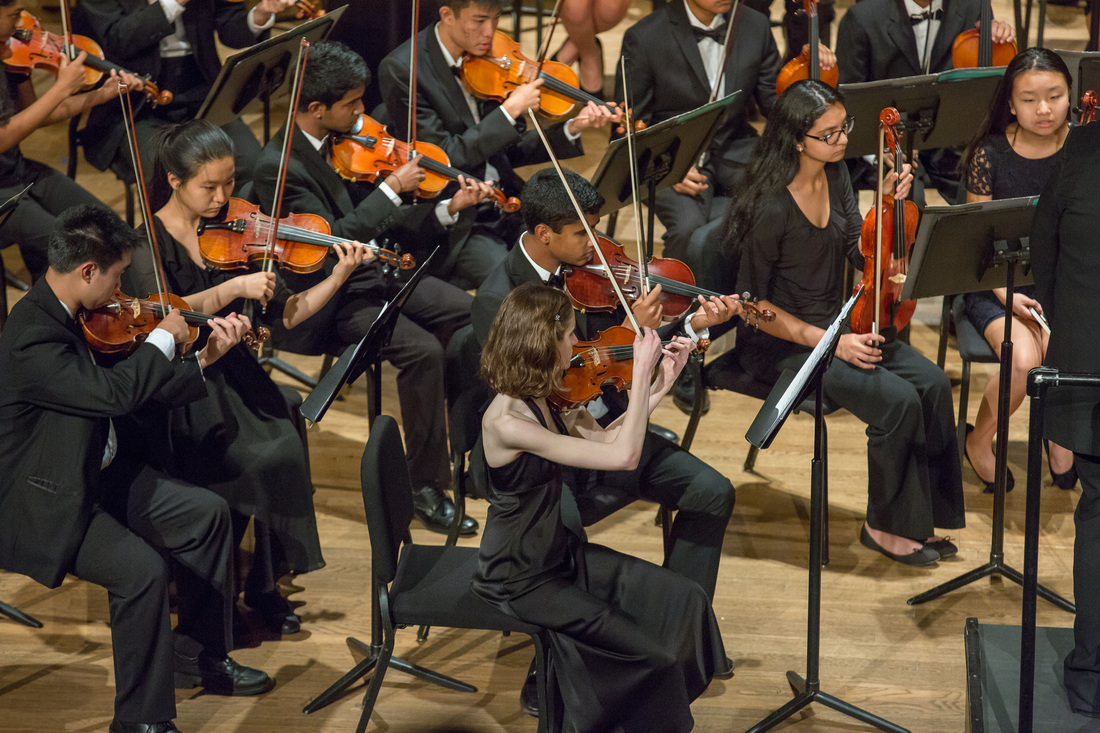Performance Workshops
|
This year, we are putting a new twist on the ensemble programming that has been the heart and soul of the GPYO for 60 years.
Our performance workshops are inspired by the studio classes, repertoire classes and master classes that are offered at conservatories and music schools. They are designed to train musicians as solo performers … but you don’t need to be a pre-professional musician to benefit from the format. Typically, musicians bring solo music that they are preparing for a concert, recital or audition. They play some or all of a piece, and receive feedback from a professional musician – their own instructor, a guest specialist on their own instrument, or maybe another member of the faculty, who may or may not be a specialist on their instrument. They also receive feedback and support from the others in the class. This is a great way to get comfortable with performing, to try out new interpretations of a piece, and to get input from an encouraging audience. The principles behind such small group learning is simple:
So …. we should give ourselves the opportunities to practice performance, as well as practicing different bowing techniques, fingerings, articulation, and stylistic interpretations. We have lined up wonderful musicians to serve as coaches and facilitators for this fun new project: longtime staff member David Rabinowitz, GPYO board members Uli Speth and Adrienne Walsh and new staff members Christopher McEwan and Noelle Casella Grand. Why is an orchestra putting on workshops for ‘soloists?’ During this peculiar year, when it is difficult to come together as an ensemble safely, and we are recording in order to perform as a group, we are now –all of us—soloists, every week. Not just the first chair players. Or at audition time. Plus, this year, we are inviting all GPYO members to perform in a virtual Winter Artists’ Showcase (more details to follow). Performance Workshops are a great way to work toward this opportunity! What kind of music should you play for a performance workshop?
How is this different from a music lesson? Instead of focusing on how to play the piece, you will focus on what you want to communicate to the audience. How will the performance workshops work? What will we focus on? No two workshops will be the same, but you will discuss:
For more information about this season, please contact Interim Executive Director Wendy Norris. |

